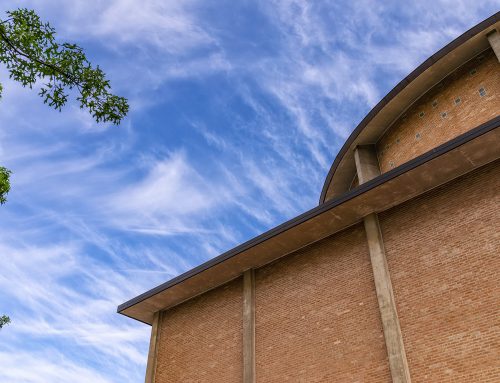South Oak Cliff High School is receiving $52 million in Dallas ISD bond funds, and that decision has left board and community members disagreeing on the definition of equity.
When the Dallas ISD board approved increasing South Oak Cliff’s bond funds by $12 million during last night’s meeting, North Dallas trustee Edwin Flores, Preston Hollow trustee Dustin Marshall and north Oak Cliff trustee Audrey Pinkerton were the only dissenting votes.
Several North Dallas residents are worried that other high schools have been neglected, particularly W.T. White. Some of them reiterated those concerns to the board during last night’s public comment session.
South Oak Cliff residents took to the mic, too. The school’s students and faculty have been vocal about their concerns, citing leaky roofs, extreme temperature changes and gas leaks as major issues. In December 2015, students staged a walkout to protest the high school’s conditions.
South Oak Cliff is one of 21 high schools districtwide in need of renovations, according to a 2013 Facility Condition Assessment report commissioned by the district, often called the Parsons report. The assessment ranks the condition of schools as good, fair or poor using its facility condition index, a comparative benchmark that takes into account each school’s current and future needs.
The condition of South Oak Cliff’s facilities were ranked as fair, according to the 2013 data, while Preston Hollow’s Hillcrest and W.T. White were considered to be poor.
Overcrowding, flooding, damaged gym floors, exposed electrical wires and limited space for athletics and fine arts are among W.T. White community members’ complaints.
During Thursday’s board meeting, southwest Dallas trustee Joyce Foreman was quick to note that W.T. White has received funding in several previous bond programs, while many southern Dallas schools were neglected. South Oak Cliff received no funding from the interim bridge plan or the 2002 bond program, and only received $7 million in 2008.
“We have got to do a better job of managing our bond funds and making sure there is equity,” she said. “Part of the problem is there’s been no equity. … We have to beg for everything we get.
“I am appalled at people who would pit school against school. We all need help.”
Flores, who represents W.T. White, believes that data is not driving the school’s decision-making, and he believes that’s where the problem lies. He gave a detailed presentation at the meeting, nothing that in giving South Oak Cliff $52 million, the district is spending nearly $40,000 per student at that high school. In comparison, he said, the bond funds Carter High School is slated to receive translate to roughly $12,000 per student — and that’s the second-highest amount districtwide.
The data may not be in South Oak Cliff’s favor, but that was irrelevant to southern Dallas trustee Bernadette Nutall, who pointed out the district’s prior disregard of statistics.
“We didn’t use data, or the Parsons report, to make the decision, why now are you using data and the Parsons report to not make a decision?” she said. “So, as I said at the board briefing, I stand with SOC.
“This has divided communities when we should be bringing them together, pit black against white. This has done a whole lot that is unnecessary, and board members started it. So you want to know about governance? We at the board started it. We didn’t hear from White, and now you want to hear from W.T. White today about what they need?”
Trustee Lew Blackburn, whose district includes South Oak Cliff High School, said schools in both north and south Dallas are in need of facility renovations, and he suggested another bond specifically for the high schools’ rehabilitation.
“I’ve seen the pictures, and they look just as bad as South Oak Cliff,” Blackburn said of northern Dallas high schools. “And as I told somebody earlier today, I will stand to help be sure that W.T. White gets what it needs.”






